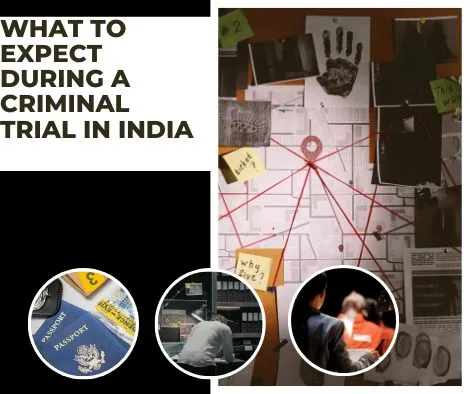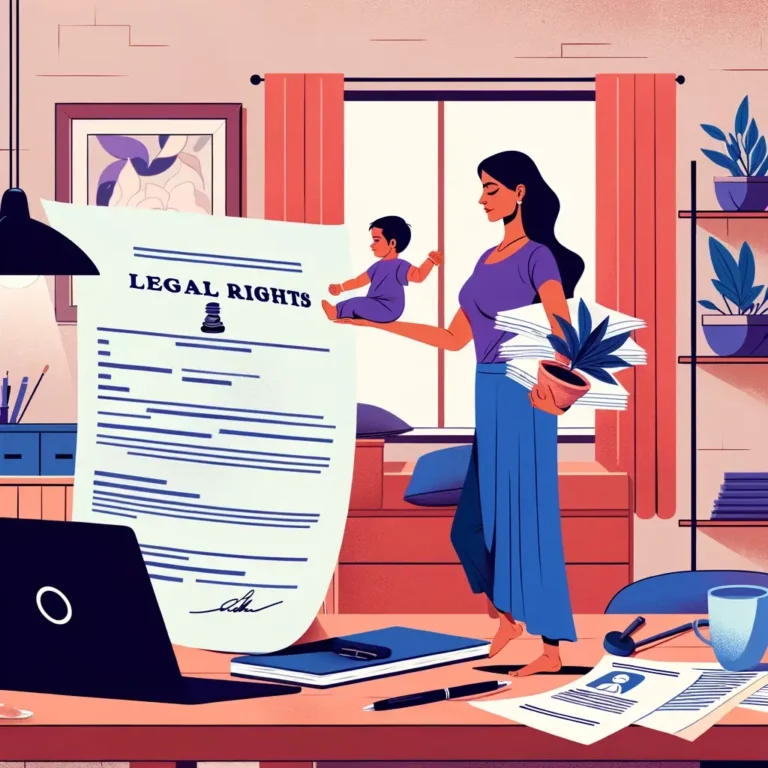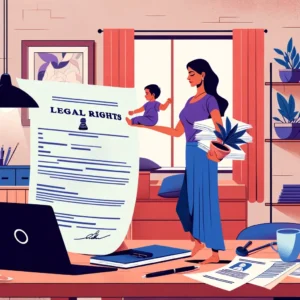In this article we have explained about Top 10 Mistakes People Make When Filing for Divorce
Top 10 Mistakes People Make When Filing for Divorce
Divorce is a complex and emotional process, often leading to critical errors that can impact one’s future. Understanding the top mistakes made during this time is crucial for a smoother, more efficient legal journey. This article aims to highlight the top 10 errors people make when filing for divorce, offering guidance to those navigating this challenging phase.
Failing to Understand Legal Rights and Obligations
Lack of Legal Knowledge
One of the most significant mistakes is a lack of understanding of one’s legal rights and obligations. Without adequate knowledge, individuals may make decisions that are not in their best interest.
Importance of Legal Consultation
Consulting with a legal professional is crucial for a clear understanding of the legal aspects of divorce, including property division, child custody, and support obligations.
Neglecting Financial Implications
Underestimating Financial Impact
Divorce can have a substantial financial impact. Failing to accurately assess and prepare for these changes can lead to long-term financial difficulties.
Financial Planning and Analysis
Engaging in thorough financial planning and analysis is vital to ensure a stable economic future post-divorce.
Letting Emotions Dictate Decisions
Emotional Decisions in Divorce
Allowing emotions to drive decisions can lead to unfavorable outcomes. Emotions can cloud judgment and hinder rational decision-making.
Importance of Objective Decision-Making
Staying objective and seeking advice from neutral parties can help in making more balanced decisions.
Overlooking the Impact on Children
Children’s Well-being in Divorce
Neglecting the emotional and psychological impact of divorce on children is a critical mistake. It’s essential to prioritize their well-being throughout the process.
Focusing on Children’s Needs
Ensuring the children’s needs are met and minimizing their exposure to conflict is crucial for their long-term well-being.
Ignoring Tax Consequences
Tax Implications of Divorce
Divorce can have significant tax implications. Ignorance in this area can lead to unexpected tax liabilities.
Seeking Tax Advice
Consulting with a tax professional is necessary to understand and prepare for any potential tax consequences.
Rushing the Process
The Downside of a Quick Divorce
Rushing through the divorce process can result in overlooking important details, leading to regrettable decisions.
The Value of Deliberation
Taking the time to carefully consider all aspects of the divorce is essential for a fair and comprehensive settlement.
Failing to Update Estate Plans
Estate Planning Post-Divorce
Not updating wills, trusts, and beneficiary designations after a divorce is a common oversight.
Importance of Revising Estate Documents
Revising estate documents is critical to ensure they reflect current wishes and circumstances.
Not Considering Mediation
Benefits of Mediation
Many overlook the option of mediation, which can be a less adversarial and more cost-effective approach to divorce.
Exploring Alternative Dispute Resolution
Considering mediation or other forms of alternative dispute resolution can lead to more amicable and satisfactory outcomes.
Handling Divorce Without Professional Help
Dangers of DIY Divorce
Attempting to handle divorce proceedings without professional assistance can lead to mistakes and overlooked details.
The Role of Divorce Professionals
Seeking help from attorneys, financial advisors, and therapists can provide necessary guidance and support.
Underestimating the Emotional Toll
Emotional Challenges of Divorce
Many underestimate the emotional toll of divorce, leading to mental health struggles.
Importance of Emotional Support
Seeking support from friends, family, or professional counselors is vital for emotional well-being during this period.
Conclusion
Avoiding these top 10 mistakes when filing for divorce is crucial for a more favorable and less stressful outcome. By being informed and seeking the right help, individuals can navigate this difficult process with greater ease and confidence.
FAQs on “Top 10 Mistakes People Make When Filing for Divorce”
- What is the most common mistake made during divorce proceedings?
- The most common mistake is not understanding one’s legal rights and obligations, which can lead to unfavorable outcomes.
- How important is legal advice when filing for divorce?
- Legal advice is crucial. It helps in understanding rights, obligations, and the legal process, ensuring informed decisions.
- Can emotions negatively impact divorce outcomes?
- Yes, letting emotions dictate decisions can lead to irrational choices and negative consequences.
- What financial mistakes should be avoided in a divorce?
- Underestimating the financial impact, not planning for future expenses, and ignoring tax implications are key financial mistakes.
- How can divorce impact children?
- Divorce can affect children emotionally and psychologically. It’s important to prioritize their well-being and stability.
- Is it necessary to update my will after a divorce?
- Yes, updating your will and other estate documents post-divorce is essential to reflect your current wishes.
- What are the tax implications of divorce?
- Divorce can affect tax filings, liabilities, and benefits. Consulting a tax professional is advisable.
- Why is rushing a divorce not recommended?
- Rushing can lead to overlooking important details and making decisions that might be regretted later.
- What is the role of mediation in divorce?
- Mediation can provide a less adversarial, more cost-effective way to reach agreements.
- Should I seek therapy during a divorce?
- Yes, therapy can help manage the emotional stress and challenges of going through a divorce.
- Is DIY divorce a good idea?
- Handling a divorce without professional help can lead to mistakes and missed details, so it’s generally not recommended.
- How can I protect my finances during a divorce?
- By conducting thorough financial planning, analysis, and seeking advice from financial professionals.
- What should I consider regarding child custody?
- Consider the child’s best interests, including their emotional, educational, and physical needs.
- Can I change my name back during the divorce process?
- Yes, you can request to revert to your maiden name as part of the divorce proceedings.
- What if my spouse doesn’t agree to the divorce?
- You can still proceed with a divorce, but it might be contested, requiring legal intervention.
- How long does a typical divorce take?
- The duration varies depending on complexity, location, and whether it’s contested or uncontested.
- What are the risks of not fully disclosing assets?
- Not disclosing assets can lead to legal consequences and could invalidate the divorce settlement.
- Can I live in the marital home during the divorce process?
- This depends on various factors and agreements made between the parties or court orders.
- Should I consider a prenuptial agreement for future protection?
- A prenuptial agreement can provide clarity and protection for future assets and is worth considering.
- How do I handle joint bank accounts during a divorce?
- Joint accounts should be addressed and potentially frozen or divided as part of the divorce agreement.
- What happens to joint debts after a divorce?
- Joint debts are typically divided as part of the divorce settlement.
- Can I date during the divorce process?
- While legally permissible, dating during divorce can complicate the process emotionally and legally.
- How is property divided in a divorce?
- Property division depends on state laws and whether it is considered marital or separate property.
- What if my spouse is hiding assets?
- If you suspect hidden assets, it’s important to inform your lawyer who can take appropriate legal steps.
- How does alimony work?
- Alimony is based on various factors including income, length of marriage, and each party’s financial needs.
- What if I don’t agree with the court’s decision?
- You can appeal the decision, but this requires legal grounds and is a complex process.
- Can I change lawyers during my divorce?
- Yes, you can change lawyers, but it’s important to consider the implications on your case’s progress.
- How do I prepare for a divorce hearing?
- Gather necessary documents, understand your rights and obligations, and prepare to articulate your position clearly.
- What is collaborative divorce?
- Collaborative divorce involves both parties working together to resolve issues with professional help, avoiding litigation.
- How can I ensure a fair divorce settlement?
- Ensuring fairness involves being informed, prepared, and supported by competent legal and financial professionals.
















